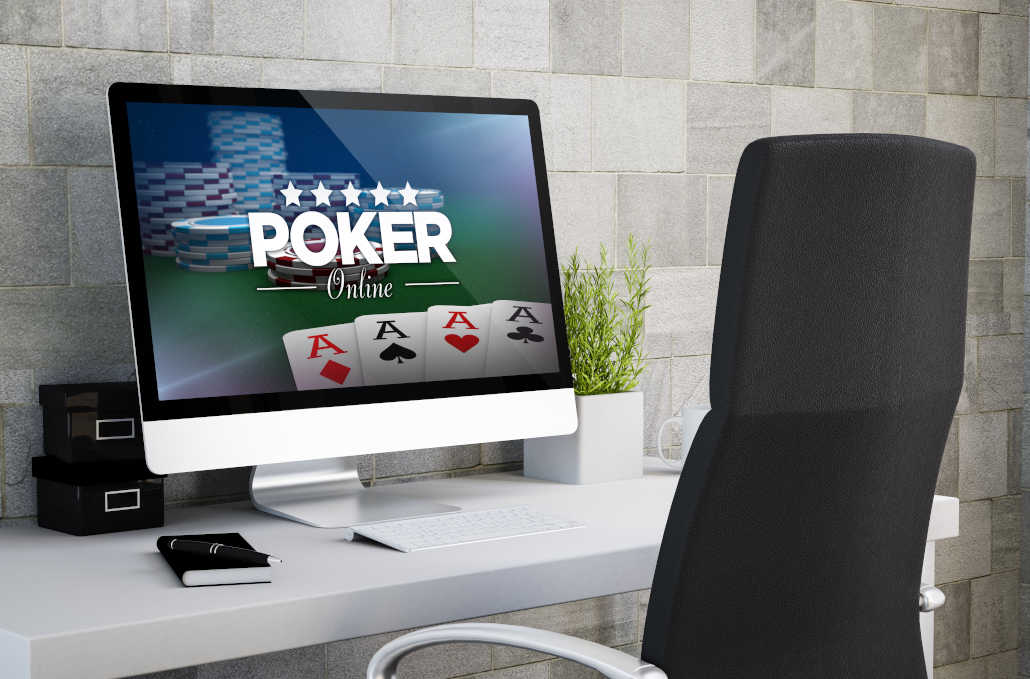Poker Journal – How to Track Your Progress and Control Tilting

8 minutes
Last Updated: March 19, 2024
The last time you kept a journal was probably in middle school, and the things you put in there had nothing to do with poker. So, you may be wondering, what does keeping a journal have to do with my poker career?
The truth is that only a small number of Texas Hold’em players actually keep a poker journal, but I think it’s one of the best ways to keep track of your journey in every imaginable aspect.
I know keeping a poker journal has helped me and some very successful poker players improve their game over time, so I wanted to tell you more about the idea.
If you want to improve as a poker player, keep reading and find out how keeping a poker journal can help you, as well as what exactly you should be writing in it.
I will go over some of the best ways to actually keep your journal and the various topics you can put in it.
You don't have to do it all, but find out what helps you keep up with the concepts you are learning and, most importantly, keep any tilting to the minimum.
How Do I Keep a Poker Journal?
So before I go into the specific things you could be writing down in your poker diary, let’s think about how to keep one in the first place.
Naturally, since you are probably playing a good chunk of your poker online, you may be tempted to simply open up a text file and keep writing.
I personally think that's not the best way to go about it.
There is nothing that can replace a nice notebook with hardcovers for keeping a journal, for poker, or otherwise.
I suggest getting a nice and thick notebook that will last you a while. If you can find one with a poker theme on the cover, even better, but it really won’t change the final result.
I think that keeping a journal with pen and paper beats writing on your computer because you have to invest yourself into it more. For me personally, reading from paper has always been more impactful than reading from a computer screen.
Tracking Your Bankroll and Gameplay Sessions
If you are looking to be a successful poker player, you should dedicate some of your time to playing poker and some of it to studying the game. If you don't study, it is really hard to get better through gameplay alone.
However, tracking your gameplay in your journal will also be very important. The way to do it is to make a journal entry every time you play a session, online or live.
Once you are done playing, start a journal entry. You can write the approximate number of poker hands or tournaments played, the stakes, the results, and some things you took from the session.
In my experience, there are usually some things that stick in my head just after the session.
I may remember a hand I played really bad or realize that I was 3-betting too much or bluffing too much post-flop. As time goes by, I tend to forget about these things.
This is why it's important to write about your sessions immediately after you are done playing. You can even open up your tracker and look over your hands while writing down some things that stick out onto the page.
By the time you are done with your entry, you may have written down a couple of key hands, as well as an important concept that you saw as problematic in that particular session.

This may not seem too useful in the short term, but after you are done playing through many sessions, you will have a full rundown of things that gave you a headache in each.
Re-reading the old posts once a week will help you grasp what it is that you need to focus on in your study sessions.
The key thing here, however, is to be very honest with yourself. After all, you are the only one who will be reading this!
Another thing to keep track of in your poker journal should be your winnings and losses. Even if you are not keeping a completely separate poker bankroll, which I recommend you do, you will have a clear way to track your wins and losses this way.
Tracking Your Poker Study Sessions
On your journey to becoming a winning poker player who can beat higher stakes games, you will need to do a lot of studying. This is something that you can't work around, and if you think your current poker skills are enough to beat every game forever, you are simply mistaken.
Once you realize the importance of studying, the trick will be to figure out the best way to do it. There are many study methods available these days, and many of them are valid.
For instance, watching training courses can be a great way to learn about new concepts, while studying your own sessions can be a good way to start implementing those concepts into your own game.
Keeping a consistent poker journal can help you keep track of what you have been learning and give you a clear idea of how to move forward with your study sessions.
For instance, if you have seen a great video about an important poker concept, such as constructing your 3-betting range in the small blind against opens from various positions, you can write down your view of the topic and what you learned that day.
Then, the next time you are studying your hands, you can refer back to the journal and compare how you played in the actual session.
Your study session notes are also a great material for your weekly journal reading. I recommend going back to recent posts every week and reminding yourself of the parts of your game you should put a heavy focus on.

Of course, it’s important to keep a healthy balance between the game and the rest of your life. Don’t become too consumed by all of it.
You should always find some time to have fun and relax, whether you do it playing online pokies, watching a movie on Netflix, hanging out with your friends, or taking a relaxing walk in nature. A healthy balance is just as important for your long-term success as keeping a poker journal.
Avoiding Tilt with Your Poker Journal
Poker is a game that requires you to master many different things, but the one that most people struggle with is the mental game.
Whether you are playing low-stakes SNGs, high-stakes cash games, or live tournaments, keeping a straight head and making the right plays in spite of adversity is what separates the elite players from the rest of us.
If you are just starting out, you may be able to quickly pick up the concepts necessary to beat the lower-stakes games.
However, even if you are good enough to win, you will need to beat tilt to actually do it, and this can be a tremendous challenge.
The variance may just be the biggest mental enemy of all poker players, and as such, it should be addressed in a proper way.
Every time you play a session, I recommend thinking about the hands you played and what it was that made you win or lose money.
Were you making a lot of sets and flushes? Were you consistently sucked out on? These are legitimate questions that will tell you what you need to improve in your game.
Be honest with yourself and write about it in your journal. If you played really badly during your session, write about it. We all had those sessions where we called every 3-bet and 4-bet our opponents threw at us, and it never really worked out.
If you write about your bad play and tilt in your journal, it may help your mental game greatly in the future.
When you remind yourself of the sessions where you tilted several buy-ins away, you should be more aware of this in the future and tend to avoid the same mistakes.

On the other hand, if you don't write it down, the chances are that you will forget about it, and by the time the next session rolls around, you will once again think that your game is flawless.
Brutal Honesty Makes Perfection
Have you ever seen a Phil Helmuth tantrum on television and laughed along as he kept repeating he’s the best in the world despite being clearly outplayed?
While you may not be saying such nonsense out loud too often, many of us have been guilty of thinking we are way better than we actually are at some point.
Who can honestly say they went into a poker game, assuming they were in the middle of the pack skill-wise?
The truth is you probably have played in such a game, and you weren't being honest with yourself at the time.
Honesty is an important part of improving as a poker player, and especially of keeping a valid poker journal that will help you in your journey to becoming a consistently winning player.

At the end of the day, writing anything other than how you really feel about your game into the journal would make no sense. You are writing this for your own future reference, and trust me when I tell you that it can help greatly in the long run.
Start Your Poker Journal Today
What are you waiting for? The time to start your very own poker journal is today! I have mentioned some of the things you could put in it, but feel free to be creative and set it up any way you want.
Your poker journal will become your best friend on your journey through different stakes, game types, and the emotional turmoil that is inevitable in the world of poker.
The point of your journal is to help you improve your game, keep consistent with your bankroll, and avoid tilting as much as possible. In my personal experience, a poker journal can help with each of these things.
Even if you are not quite sure how to keep your log, I recommend starting with some entries and simply writing down anything that comes to mind. As time goes by, you will get better at putting in the important stuff, and your journal will start to feel like a part of your routine.
And, who knows, one day, you may turn it into an interesting poker book!


















